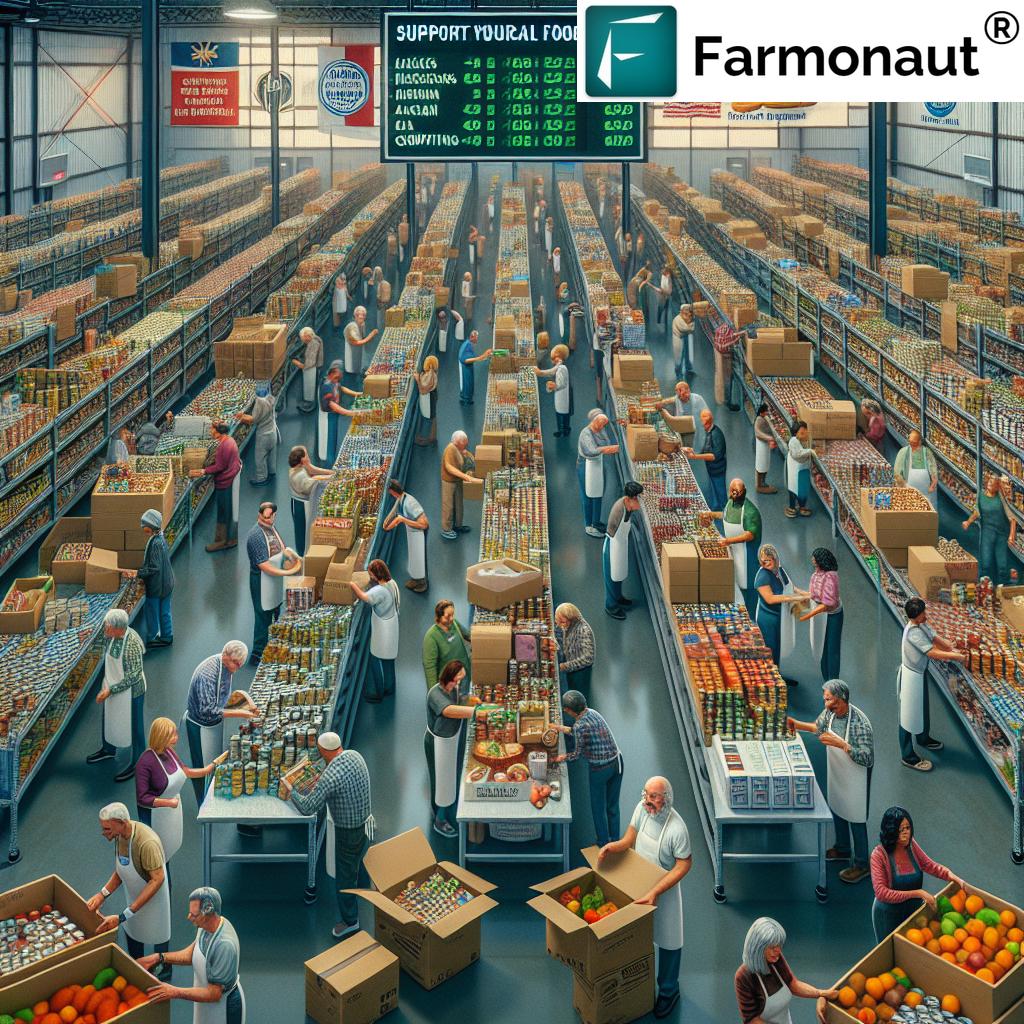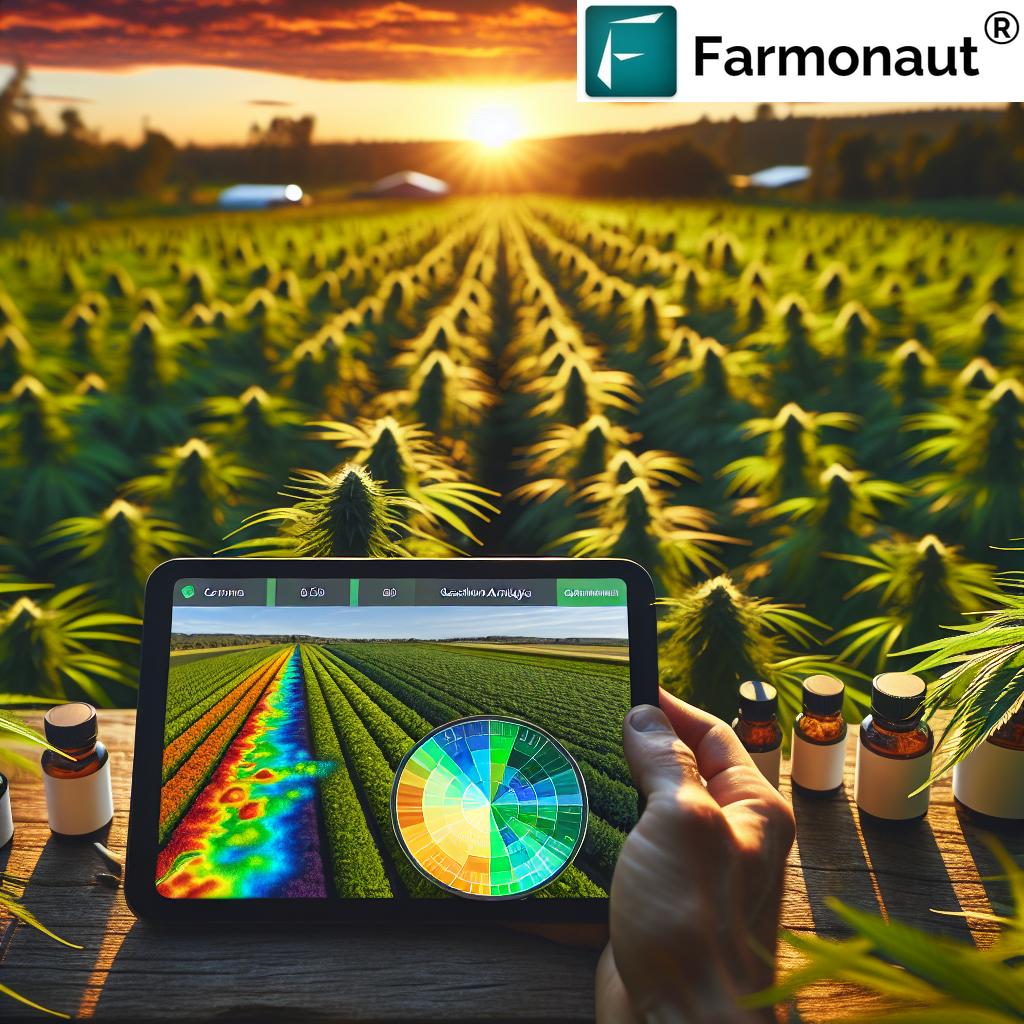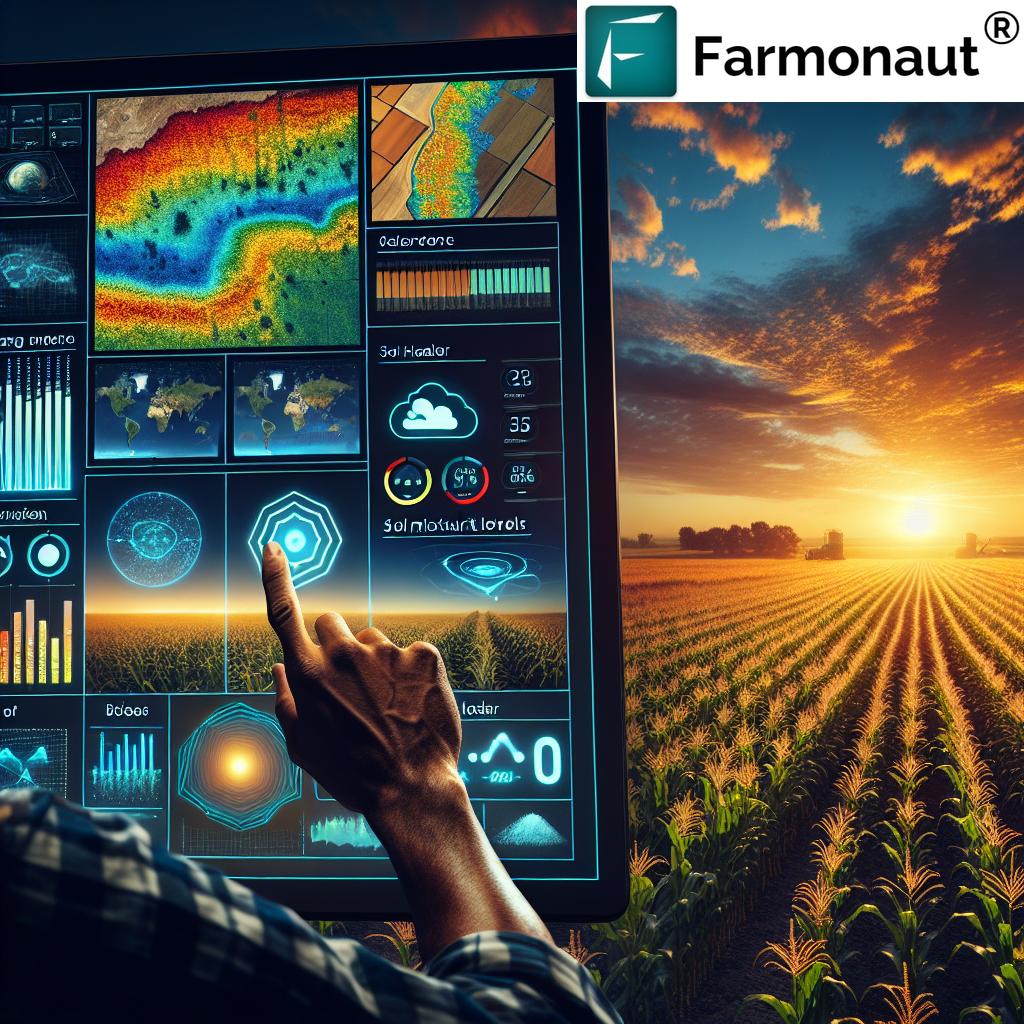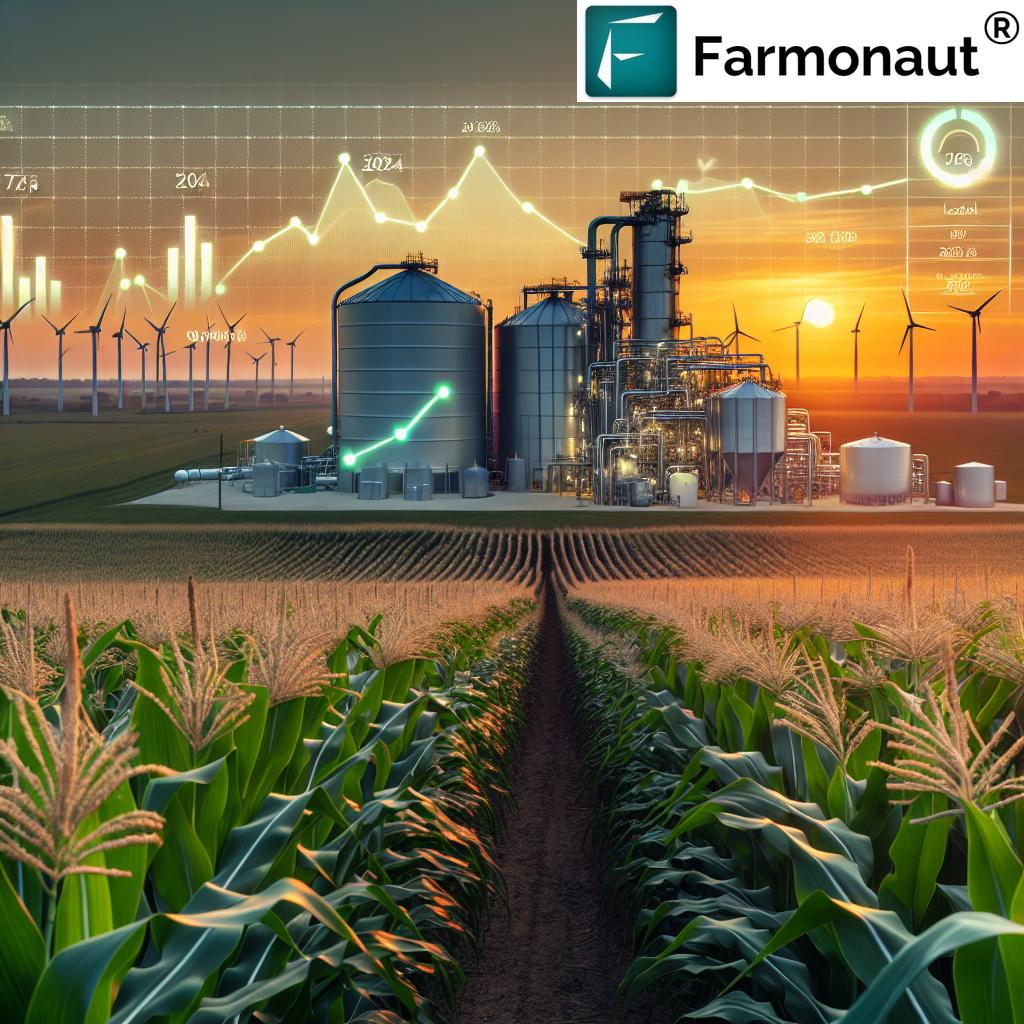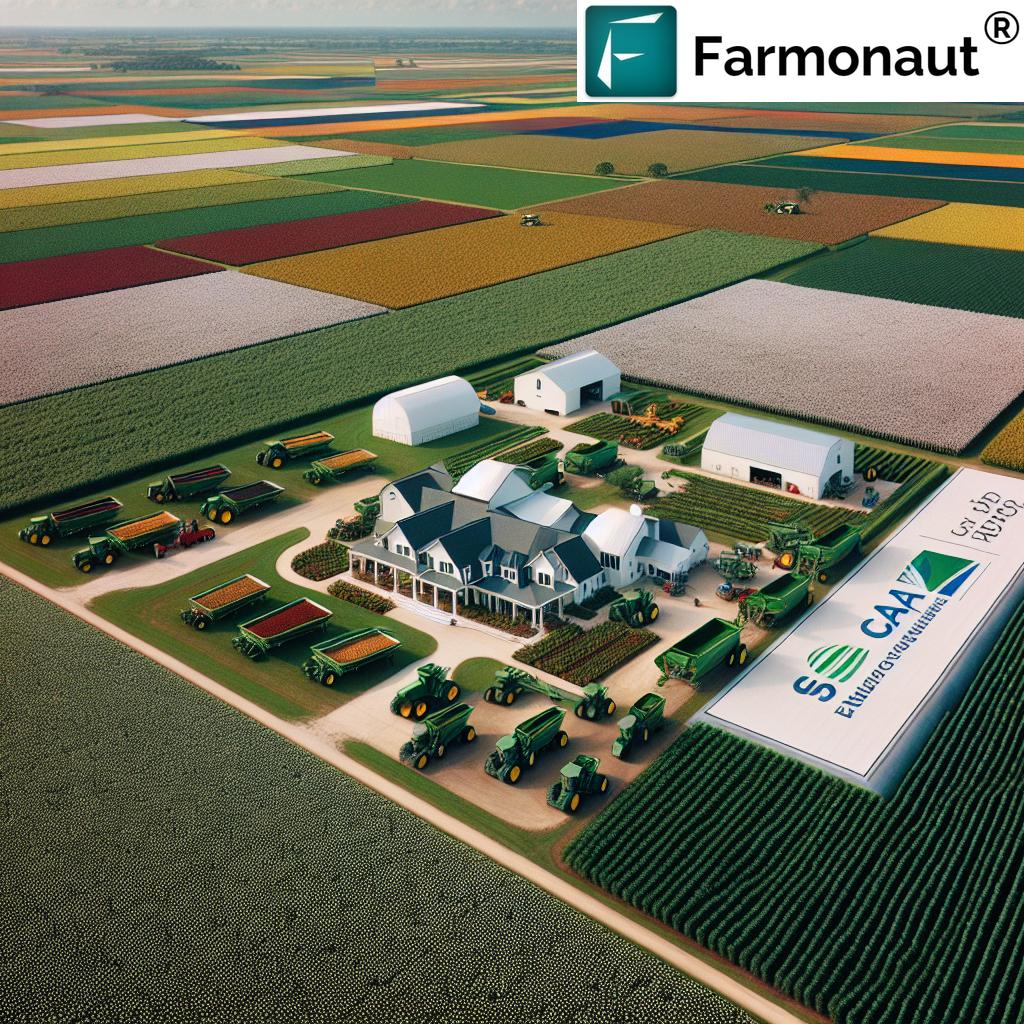Revolutionizing California Agriculture: How Data-Driven Farming and Soil Digitization Boost Profitability and Sustainability
“Soil digitization can increase crop yields by up to 20% while reducing water usage by 30% in California agriculture.”
In the heart of California’s agricultural landscape, a revolution is underway. We’re witnessing a transformation that’s reshaping the way we approach farming, one that promises to boost both profitability and sustainability. At the forefront of this change is the innovative concept of soil digitization and data-driven farming practices. As we delve into this exciting new frontier, we’ll explore how these cutting-edge technologies are empowering farmers and ranchers across the Golden State.
The Dawn of Data-Driven Agriculture in California
California has long been known as America’s fruit basket, producing over a third of the country’s vegetables and two-thirds of its fruits and nuts. However, the challenges of climate change, water scarcity, and the need for sustainable practices have pushed the agricultural sector to seek innovative solutions. This is where data-driven farming and soil digitization come into play.

Soil digitization is a groundbreaking approach that involves creating a digital twin of the soil. This process uses advanced sensing technologies to map and analyze soil properties in unprecedented detail. By leveraging this data, farmers can make more informed decisions about crop management, irrigation, and resource allocation.
The Role of Predictive Agronomy in Modern Farming
Predictive agronomy takes soil digitization a step further by using artificial intelligence and machine learning algorithms to forecast crop performance, pest outbreaks, and weather impacts. This proactive approach allows farmers to address potential issues before they become problems, significantly reducing risks and optimizing yields.
At Farmonaut, we’re proud to be at the forefront of this agricultural revolution. Our platform integrates satellite imagery, AI, and machine learning to provide farmers with real-time insights into their crops and soil health. By leveraging these technologies, we’re helping California’s farmers make data-driven decisions that boost both their profitability and sustainability.
The Impact of Soil Digitization on California’s Agricultural Landscape
The adoption of soil digitization and data-driven farming practices is having a profound impact on California’s agricultural sector. Let’s explore some of the key benefits:
- Improved Water Management: In a state where water is a precious resource, precision irrigation guided by soil moisture data can reduce water usage by up to 30%.
- Enhanced Nutrient Management: By understanding the exact nutrient composition of their soil, farmers can apply fertilizers more efficiently, reducing costs and minimizing environmental impact.
- Pest and Disease Control: Predictive models can forecast potential pest and disease outbreaks, allowing for targeted and timely interventions.
- Increased Yield: With optimized growing conditions, farmers are seeing yield increases of up to 20% across various crops.
“Predictive agronomy powered by GIS technology can help farmers reduce pesticide use by 15% and improve soil health by 25%.”
Farmonaut: Empowering California Farmers with Agricultural Intelligence
At Farmonaut, we’re committed to making precision agriculture accessible to farmers of all scales. Our platform offers a suite of tools designed to provide actionable insights for irrigation management, pest control, and weed detection. By leveraging advanced soil sensing technologies and GIS, we’re helping California farmers optimize their operations and boost their bottom line.
Our services include:
- Real-time crop health monitoring using satellite imagery
- AI-driven advisory systems for personalized farm management
- Blockchain-based traceability for supply chain transparency
- Resource management tools for efficient farm operations
To explore how Farmonaut can revolutionize your farming operations, check out our web application or download our mobile apps:
The Power of GIS in Precision Agriculture
Geographic Information Systems (GIS) play a crucial role in the implementation of precision agriculture techniques. By combining satellite imagery, GPS data, and soil sensor information, GIS creates detailed maps that provide farmers with a comprehensive view of their fields. This technology allows for:
- Accurate field boundary mapping
- Identification of soil variability within fields
- Creation of yield maps for performance analysis
- Optimization of equipment routes for efficient field operations
Farmonaut’s platform leverages GIS technology to provide farmers with these advanced capabilities, enabling them to make data-driven decisions that optimize their operations and improve overall farm productivity.
Soil Health Management: The Foundation of Sustainable Agriculture
At the core of data-driven farming is a deep understanding of soil health. Healthy soils are the foundation of productive and sustainable agricultural systems. Through soil digitization, farmers can gain unprecedented insights into their soil’s physical, chemical, and biological properties.
Key aspects of soil health management include:
- Monitoring soil organic matter content
- Assessing soil microbiome diversity
- Tracking soil moisture and temperature
- Analyzing nutrient cycling and availability
By focusing on these factors, farmers can implement practices that improve soil structure, increase water retention, and enhance nutrient availability. This not only boosts crop yields but also contributes to long-term soil sustainability.
Comparative Analysis: Traditional vs. Data-Driven Farming in California
| Metric | Traditional Farming Methods | Data-Driven Farming with Soil Digitization |
|---|---|---|
| Average Crop Yield (estimated) | 100% (baseline) | 120% (20% increase) |
| Water Usage Efficiency (%) | 60% | 85% |
| Fertilizer Optimization (%) | 70% | 90% |
| Pest Management Effectiveness (scale 1-10) | 6 | 9 |
| Soil Health Index (scale 1-100) | 65 | 85 |
| Annual Profitability Increase (estimated %) | 0% (baseline) | 15-25% |
This comparative analysis clearly demonstrates the significant advantages of adopting data-driven farming practices. From increased crop yields to improved resource efficiency, the benefits are substantial and far-reaching.
Implementing Data-Driven Farming Techniques
For California farmers looking to embrace data-driven farming, here are some key steps to get started:
- Soil Mapping: Conduct comprehensive soil surveys to create detailed maps of soil properties across your fields.
- Implement Precision Irrigation: Use soil moisture sensors and weather data to optimize irrigation schedules.
- Adopt Variable Rate Technology: Apply fertilizers and pesticides at variable rates based on soil and crop needs.
- Utilize Crop Monitoring Tools: Employ satellite imagery and drones for regular crop health assessment.
- Integrate Farm Management Software: Use platforms like Farmonaut to centralize data and gain actionable insights.
By implementing these techniques, farmers can significantly improve their operational efficiency and sustainability.
The Future of California Agriculture: Sustainability and Profitability
As we look to the future, the integration of data-driven farming practices and soil digitization will play a crucial role in ensuring the sustainability and profitability of California’s agricultural sector. These technologies offer solutions to some of the most pressing challenges facing farmers today, including:
- Climate change adaptation
- Water scarcity management
- Soil degradation prevention
- Increasing regulatory pressures
By embracing these innovative approaches, California’s farmers can not only overcome these challenges but also position themselves as leaders in sustainable and profitable agriculture.
Farmonaut’s Role in Shaping the Future of Agriculture
At Farmonaut, we’re committed to driving innovation in the agricultural sector. Our platform continues to evolve, incorporating the latest advancements in satellite technology, AI, and data analytics. We’re working tirelessly to provide California’s farmers with the tools they need to thrive in an increasingly complex and challenging environment.
For those interested in leveraging our technology for custom applications, we offer a robust API. Developers can access our API documentation to integrate Farmonaut’s powerful capabilities into their own solutions.

Conclusion: Embracing the Agricultural Revolution
The revolution in California agriculture through data-driven farming and soil digitization is not just a technological shift; it’s a fundamental change in how we approach food production. By embracing these innovative practices, farmers can significantly boost their profitability while contributing to a more sustainable future.
As we continue to face global challenges such as climate change and food security, the importance of these technologies cannot be overstated. They offer a path forward that balances productivity with environmental stewardship, ensuring that California remains at the forefront of agricultural innovation.
We invite you to join us in this exciting journey towards a more intelligent, efficient, and sustainable agricultural future. Explore Farmonaut’s solutions and see how we can help transform your farming operations today.
Farmonaut Subscriptions
Frequently Asked Questions
Q: What is soil digitization?
A: Soil digitization is the process of creating a digital representation of soil properties using advanced sensing technologies. This allows farmers to map and analyze soil characteristics in detail, enabling more informed decision-making in crop management.
Q: How does data-driven farming improve profitability?
A: Data-driven farming improves profitability by optimizing resource use, increasing crop yields, and reducing waste. It allows for precise application of inputs like water and fertilizers, and helps in early detection of crop issues, leading to more efficient and cost-effective farming practices.
Q: Can small-scale farmers benefit from these technologies?
A: Absolutely! Farmonaut’s platform is designed to be accessible and affordable for farmers of all scales. Our solutions can be tailored to meet the needs of small-scale operations, providing valuable insights that can significantly improve productivity and profitability.
Q: How does Farmonaut contribute to sustainable agriculture?
A: Farmonaut promotes sustainable agriculture by helping farmers optimize their resource use, reduce chemical inputs, and improve soil health. Our technologies enable more precise farming practices that minimize environmental impact while maximizing productivity.
Q: What kind of data does Farmonaut provide?
A: Farmonaut provides a wide range of data including crop health indices, soil moisture levels, weather forecasts, and pest risk assessments. This data is derived from satellite imagery, ground sensors, and advanced AI algorithms.
As we conclude this exploration of data-driven farming and soil digitization in California agriculture, it’s clear that these technologies are not just trends, but essential tools for the future of farming. By embracing these innovations, California’s agricultural sector is poised to lead the way in sustainable and profitable farming practices, ensuring a bright future for generations to come.





